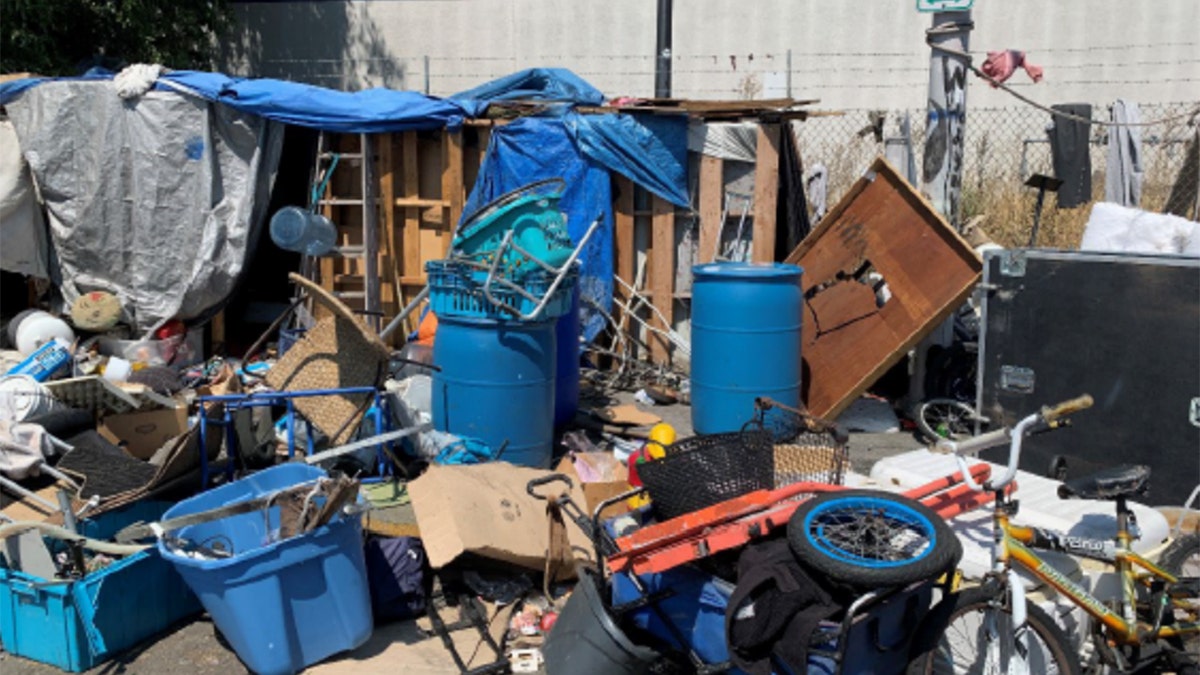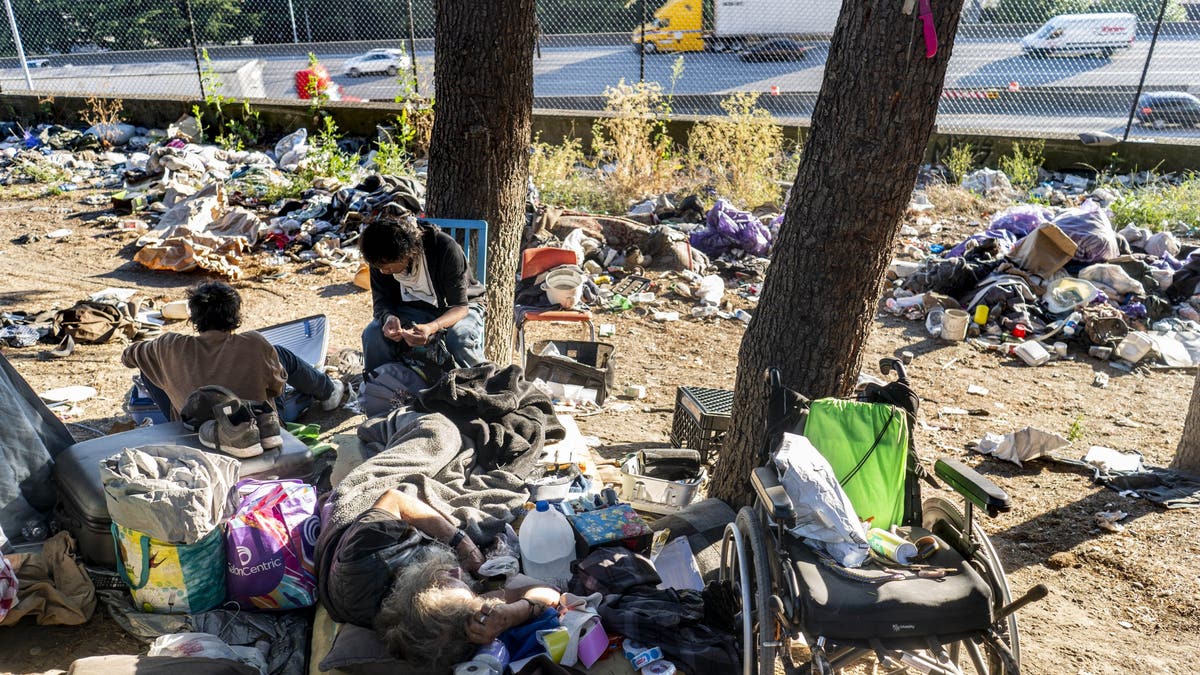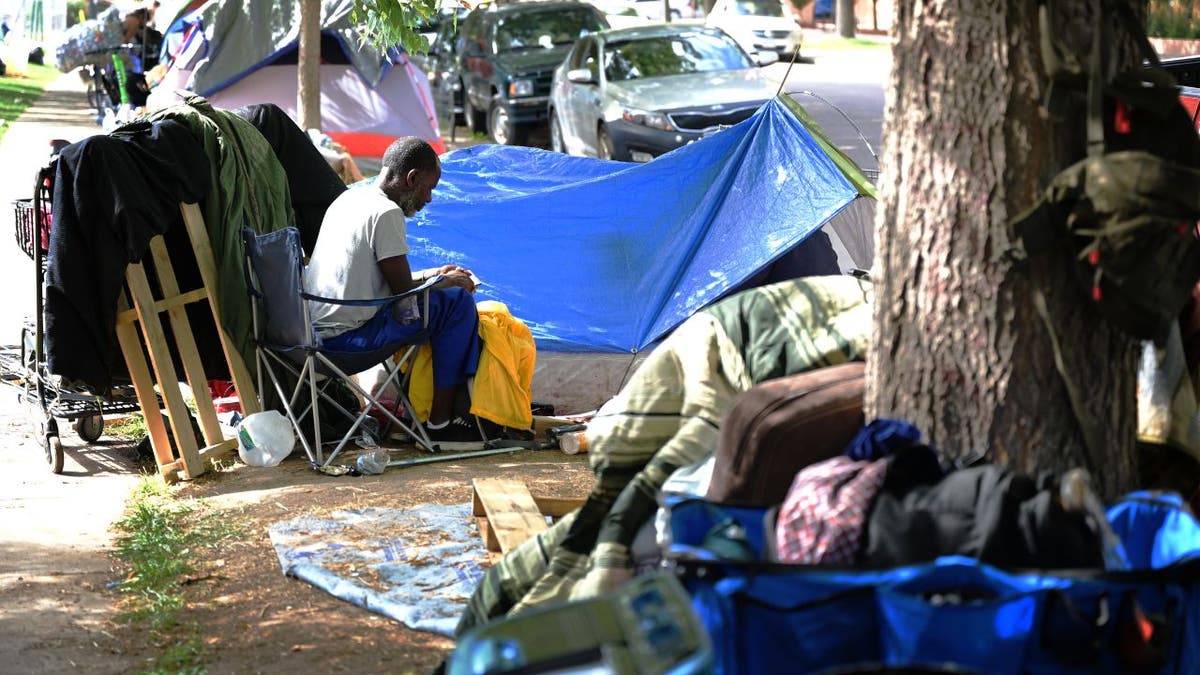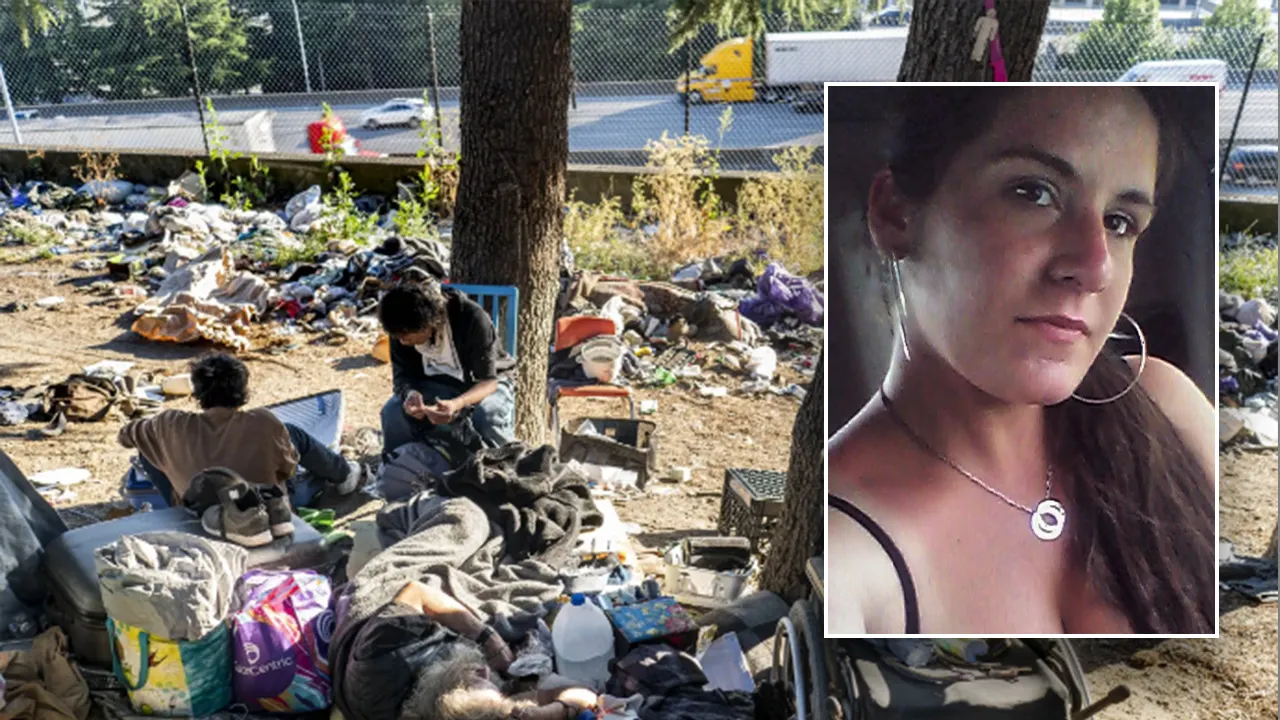The body of a Seattle mother shoved into a suitcase and uncovered in a homeless encampment highlights the inherent dangers of encampments nationwide, experts tell Fox News Digital.
Shannon Reeder, 37, had been missing since November 2023, Fox News Digital previously reported. On Sept. 27, police officers hauling away tents and trash from a homeless encampment in the area of Seattle’s Dr. Jose Rizal Park found her remains in a “large suitcase” near a trash pile.
Law enforcement and outreach workers were clearing the area after a separate incident in which a man was shot and injured near the tents, Law & Crime reported.
“Detectives are working with those who knew her to put together a timeline of her movements prior to her death,” the Washington State Patrol said in an Oct. 4 statement.
MISSING WOMAN FOUND DEAD IN SUITCASE AT SEATTLE HOMELESS ENCAMPMENT
Shannon Reeder, 37, was found dead in a suitcase on Sept. 27 at an encampment in the area of Dr. Jose Rizal Park in Seattle. (Shannon Reeder/Instagram)
“Detectives continue to investigate Shannon Reeder’s death and are seeking information from anyone who has seen Shannon Reeder or had contact with her in the last 12 months. Anyone with information, that might be helpful in finding out what happened to Shannon, or who might have knowledge of who may have been involved in her untimely death and the callous disposal of her remains, are asked to call Detective John Ford at 425-401-7742 or Detective Ivan Sergeev at 425-401-771,” police continued.
Investigators do not know whether Reeder died at the encampment or in another location.
According to the National Institute of Health, the rate of violent crimes is 40 times higher among homeless populations; nonviolent crimes are 27 times higher, according to the agency.
Washington state has closed down 47 encampments in five counties since 2022, according to the Seattle Times.
There are more than 31,000 homeless people living in the state, according to a 2024 point-in-time count conducted one night in January, the Washington State Department of Commerce said. King County, where Seattle is located, was home to 14,149 homeless people at 2023’s point-in-time count; it has the third-highest homeless population in the country after New York City and Los Angeles County.
FLORIDA LAW BANNING HOMELESS PEOPLE FROM SLEEPING IN PUBLIC OUTDOOR SPACES TAKES EFFECT

Berkeley, Calif., is being sued by several businesses for failing to remove homeless encampments. (Superior Court of the State of California County of Alameda)
Mark Powell, a former reserve police officer with the San Diego Police Department who has criticized the city’s handling of homeless encampments, said the discovery of Shannon Reeder’s body underscores the importance of controlling and monitoring encampments.
“There are campsites all over the state of Washington, in California – every state has campsites and there are rules and regulations in the campsites … none of those rules apply [in homeless encampments],” he told Fox News Digital.
“They’re free to do whatever they want, and as you can see, they do. Sadly, one of the things they did do was decide to turn their campsite into a makeshift cemetery where they took Shannon Reeder … somebody placed her in a suitcase and left her to die or left her to rot in the middle of an encampment,” he continued. “You would never see that happen anywhere else – you can’t just bury a person in your backyard.
“We live in a civil society – rules should apply uniformly to people. Select groups aren’t allowed to just eminent domain pieces of land. Government is able to put a satellite in the middle of space and take pictures of other galaxies. The government is able to land what is essentially a remote control car on Mars and send pictures back to us. Yet when you ask them to take 250,000 homeless people nationwide off the streets, they throw their hands up and say, ‘This is too complicated.’”
BLUE STATE COUNTY BUCKS TREND ON HANDOUTS – AND HOMELESS POPULATION CRATERS

Near downtown Seattle and along I-5, a homeless community of tents nicknamed The Treeline lives on the edge of the freeway. (Melina Mara/Washington Post via Getty Images)
Powell said that the city of Seattle should have the responsibility of cleaning up these camps periodically – “not just every four or five months” – to maintain the safety of the homeless and surrounding communities.
The city of Seattle did not respond to requests for comment at press time.
Scott Silverman, a crisis counselor based in San Diego who works with homeless veterans and has authored several books on addiction and the opioid epidemic, told Fox News Digital that living in an encampment “is not a safe thing for anybody … especially women, children and seniors because they’re easily targeted.”
CLICK HERE TO GET THE FOX NEWS APP

A homeless encampment in Denver (Hyoung Chang/Denver Post)
“[Encampments have] become a real problem because you’ve got people lacking life skills. You have people that don’t want to follow rules. You have people that really have some … deeply rooted untreated trauma. And they’re not getting those services in the camps,” Silverman said.
CLICK HERE TO GET THE FOX NEWS APP
Homeless encampments aren’t just dangerous, they’re a health hazard. More than 700 hepatitis A infections in California between 2016 and 2018 were caused by homelessness – namely, infected feces at encampments without proper plumbing – and drug use, according to the Centers for Disease Control and Prevention.
Diseases that haven’t been widespread since medieval times – like typhus and tuberculosis – have been spreading through the country’s homeless shelters and encampments, according to an investigation by The Atlantic.


